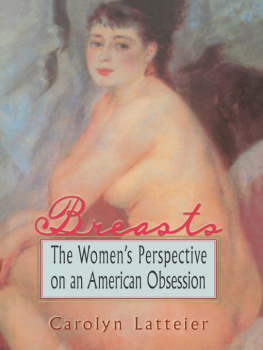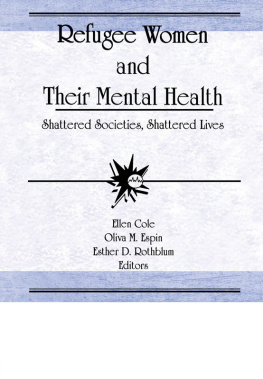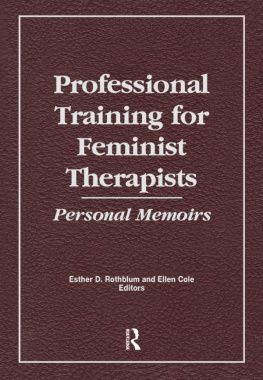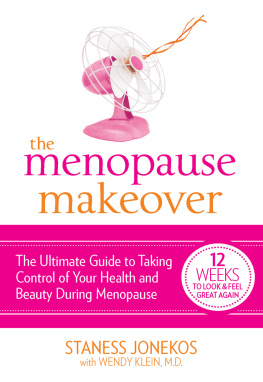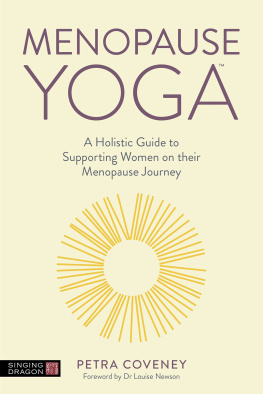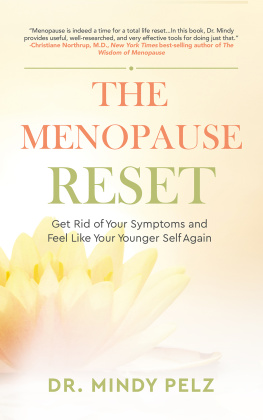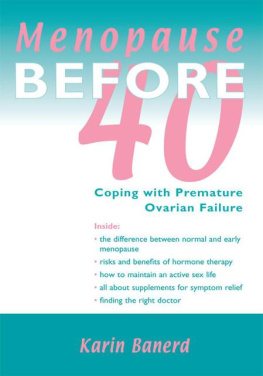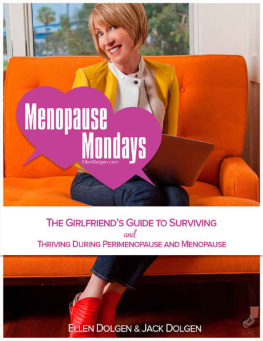A Menopausal Memoir
Letters from Another Climate
A Menopausal Memoir
Letters from Another Climate
Anne Herrmann
First published by
The Harrington Park Press, an imprint of The Haworth Press, Inc., 10 Alice Street, Binghamton, NY 13904-1580
This edition published 2013 by Routledge
Routledge | Routledge |
Taylor & Francis Group | Taylor & Francis Group |
711 Third Avenue | 2 Park Square, Milton Park |
New York, NY 10017 | Abingdon, Oxon OX14 4RN |
Routledge is an imprint of the Taylor & Francis Group, an informa business
1998 by The Haworth Press, Inc. All rights reserved. No part of this work may be reproduced or utilized in any form or by any means, electronic or mechanical, including photocopying, microfilm, and recording, or by any information storage and retrieval system, without permission in writing from the publisher.
Cover design by Marylouise E. Doyle.
The Library of Congress has cataloged the hardcover edition of this book as:
Herrmann, Anne.
A menopausal memoir : letters from another climate / Anne Herrmann.
p. cm.
Includes bibliographical references.
ISBN 0-7890-0296-5 (alk. paper)
1. Herrmann, AnneHealth. 2. MenopauseBiography. I. Title.
RG186.H47 1998
362.1981750092dc21
[B]
97-31420
CIP
ISBN 1-56023-919-0 (pbk.)
CONTENTS
ABOUT THE AUTHOR
Anne Herrmann, PhD, is Associate Professor of English and Womens Studies at the University of Michigan, Ann Arbor. She is the author of The Dialogic and Difference: An/Other Woman in Virginia Woolf and Christa Wolf (Columbia University Press, 1989) and co-editor, with Abigail Stewart, of Theorizing Feminism: Parallel Trends in the Humanities and Social Sciences (Westview Press, 1994). Dr. Herrmann received her BA from Stanford University, a LizPhil from the University of Zrich, and her PhD in Comparative Literature from Yale University.
I would like to express my gratitude to those without whose conversations I would not have had the courage to continue with this coming-into-writing and who generously gave of their time as readers and from whose responses I learned much about my own desires and disavowals, as well as how readers always seem to wish from the author a different book: Michael Awkward, Liz Barnes, Johanna Frank, Matt Griffin, Bert Ortiz, Marlon Ross, Abby Stewart, and Martha Umphrey.
I would also like to thank the Office for Vice President for Research (OVPR) at the University of Michigan for providing funds that enabled me to take a terms leave, and to Tricia Ortiz and Ted Alway whose hospitality has given me, at much appreciated intervals, a place to work.
The addressees, who have been chosen not through any willingness on their own part, remain unnamed, and thereby, hopefully unharmed.
The photograph of Samnaun, Switzerland was taken by George Herrmann and the photograph of the Moana Hotel is photographer unknown, printed by courtesy of the Hawaii State Archives.
climacteric
[from Latin, from Greek klimakter round of a ladder, from klimax ladder]
Relating to, or constituting, a climacteric; critical.
noun.
1. A period or point in human life (as the menopause) in which some great change in the constitution, health, or fortune takes place or is supposedly likely to occur; as, the climacteric or grand climacteric, ones sixty-third year.
2. Any critical period.
This menopause is probably the least glamorous topic imaginable; and this is interesting, because it is one of the very few topics to which cling some shred and remnants of taboo.
Ursula K. Le Guin
The menopause has not only come of age, its come out of the closet.
Joanna Goldsworthy
Letter to the Reader: Mourning and Memory
Whoever says You does not have something;
he has nothing.
But he stands in relation.
Martin Buber, I and Thou
This memoir is the result of memory workMemory work as the product of mourning. Mourning the loss not of a family member, but a part of the body. Not as body part but as female body. Mourning not a lost potential for motherhood, but of ones body image as female. Same-sex desire as the wish for a female body: ones own as a body that can be narcissistically invested; the mothers, so as to deny her premature and inevitable loss; the other womans as the body threatened by nonexistence, yet made attainable through the disavowal of its unattainability.
If I speak in terms of loss you will assume I couldnt be mourning the loss of my organs. You will think I must be grieving my childlessness, the fact of its irreversability. You will wonder why recovery is taking so long, since Ive never wanted to be a mother anyway.
Why do I need to speak at all?
I lost my mother in my twenties. Recovering from the loss of my ovaries and uterus made me remember, one more time, the loss of her. I imagine an improbable dialogue with her, in the form of a letter. All the letters are to people I have been close to, but not all those who are close to me now appear as addressee.
I am telling you this because how else will you know?
I wrote this memoir as part of a recovery process: from a benign condition that compromised my menstrual cycles for possibly most of my life (endometriosis); from surgery that involved the removal of reproductive organs (hysterectomy and bilateral oophorectomy); from an unexpected, premature, and precipitous entrance into menopause. Recovery required recovering the histories of the body/bodies that had been lost from a position of intense isolation within the body. Bodies cannot speak to one another. They require mediation, through the professional purveyor of legitimate medical knowledge, through the laying on of hands by alternative healers, through language.
As a feminist I have spent most of my life thinking about the relationship between bodies, gender identity, and the category of experience, asking, how do we know that what we have had is an experience? As a literary theorist I have thought about what counts as experience and how it enters language, losing its relationship to the real by acquiring the attributes of representation. As the bilingual offspring of (Swiss) immigrants I repeatedly return to the epistolary as a way of both enacting and disavowing the inherent division(s) within language. This memoir is a work of literary nonfiction: nothing I say has been invented, but the form, and thus the meanings, are solely my invention.
Who am I addressing?
I was considered completely well until it was discovered that I had been harboring an illness. For how long, no one will ever know. Because I was suffering from a non-life-threatening condition and not a disease, I could have been living with it for most of my adult life. While never threatening my life, it had largely governed it, affecting a monthly cycle whose pain and affective volatility I had learned to manage with determination and discipline over the course of thirty years. Because the condition can be diagnosed only when observable to the human eye, it requires surgical intervention, in its least intrusive form as laparoscopy. Eliminating the symptoms


